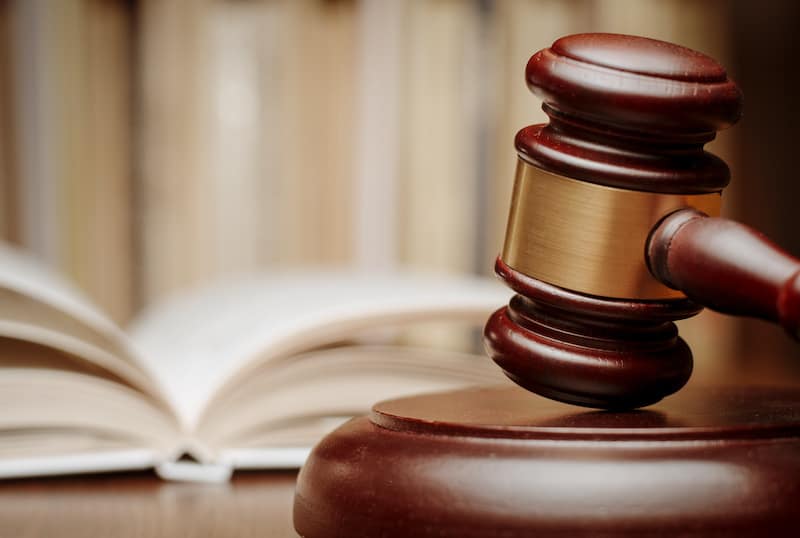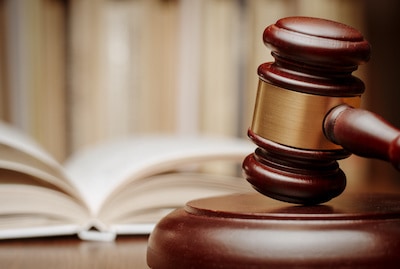
07 May Do Depositions Always Go to Trial?
Will a Case Always Go To Trial After a Deposition?
A friend of mine was involved in a lawsuit a few years ago. She had no idea what to expect from the entire process, from the deposition to the courtroom. If you’re not involved in the law, it can be intimidating to be asked to go through with a deposition. One of her questions was if the deposition, which records witnesses’ accounts to ensure the truth is being told, would be presented at court? The answer isn’t a direct yes or no. If you’re in the same boat as my friend, we’re here to ensure you have the answers you need.
So, do depositions always go to trial? After deposition, the transcript of what you said may or may not go to trial, depending upon how relevant the information is to the case. A deposition is a pre-trial assessment to help determine the truth. Any information from a deposition will be reviewed before it would ever go to court.
If you’re worried about your deposition, we’re here to help! Although the thought of answering in-depth questions and being considered a witness can be intimidating, being prepared for what to do will help you stay calm, relaxed, and collected. Continue reading for more tips on understanding your deposition.
What is a Deposition?
Before we get into the details of depositions, you should have a basic understanding of what a deposition is. Unlike an examination under oath, a deposition is a pre-trial assessment to help build the opposing lawyer’s cases. In a deposition, lawyers will ask you a range of questions to help establish the truth of the case.
Depositions are part of the legal process for many kinds of cases. If you’re in a deposition, you will be sworn in under oath. When it comes to depositions, you should always answer most accurately, and thoroughly you are able. As we mentioned above, there is a chance that this deposition could make it into the trial at court, so you want to provide relevant and exact information to help the truth be identified.
A deposition does not physically happen in a courtroom, but that certainly does not mean that it is any less vital than if it did. Depositions help determine the case and ensure that a witness’s story is intact rather than changing based upon circumstances. If you’re in a deposition, don’t panic! Just try to be as calm and thorough as you can. The rest will be up to the lawyers. Another critical thing to note with a deposition is there may be multiple people involved, not just you and a lawyer. A deposition could include additional attorneys, a video team if it’s being recorded, other people in the suit, family embers, a court reporter, and even insurance adjusters.
What Happens After a Deposition?
 Depositions are a crucial pre-trial process. Depositions help attorneys build their cases based on the witness’s accounts. They usually take place after a lawsuit is issued but before it can reach a trial. As we’ve discussed, a deposition may not end up being relevant enough to be presented at court, and sometimes the case settles before it even needs to move to court.
Depositions are a crucial pre-trial process. Depositions help attorneys build their cases based on the witness’s accounts. They usually take place after a lawsuit is issued but before it can reach a trial. As we’ve discussed, a deposition may not end up being relevant enough to be presented at court, and sometimes the case settles before it even needs to move to court.
Here are the most likely outcomes of what happens after a deposition:
- One party involved in the lawsuit recognizes that their case is not strong enough for a trial and offers a settlement.
- One party has a strong case but would still like to avoid going to court and offers a, typically much lower, settlement.
- Both sides are confident with their case and choose to go to trial, which could end up being a lengthy process.
Do Most Cases Settle After a Deposition?
Each case is different, from personal injury to other kinds of lawsuits. There is no guarantee that a settlement will happen or how long a trial could last. However, most civil cases will end after the depositions are finished, the discovery phase is closed, and a settlement has been made.
Discovery is usually the most long-drawn-out portion of a litigation process regarding civil lawsuits, like personal injury. However, with other types of cases, the trial process could also be reasonably long, depending upon the severity, style, and information brought forth during the discovery phase.
Typically, the defendant (who is alleged to have caused the incident) has a set time to respond to a claim brought against them. If they do not respond, the judgment favor will automatically go to the plaintiff, who filed the claim. The plaintiff is the person who was injured who filed the lawsuit. However, the defendant will usually respond to the claim via insurance and begin the discovery phase and depositions. Once the discovery phase is done, the issue will be settled or go to court.
Can You Walk Out of a Deposition?
Being part of any of the litigation processes can be overwhelming and stressful. It is a severe matter and should be treated with respect, but don’t be too stressed. You may wonder if you can leave during a deposition or even avoid specific questions? The opposing attorney often conducts depositions, so it can be even more stressful when you ponder accidentally saying the wrong thing!
Can you refuse to answer specific questions or even walk out of a deposition? Usually, you cannot avoid questions during a deposition unless the information you’re providing would reveal irrelevant private information. You can also choose not to answer if the court had previously ordered that something cannot be disclosed.
Several information types can be given during a deposition. There is confidential information by law that cannot be disclosed, such a doctor/patient confidentiality, etc., which is called privileged information. There is private information, which pertains to personal matters like health, sexuality, and even religion. This must be directly related to the case to be pertinent. There is also irrelevant information with no pertinence whatsoever to the case and could make your deposition irrelevant.
Keep in mind that a judge in court can overrule your hesitancy to answer when it comes to the case. If a question directly impacts a case, you will need to divulge the information in the deposition for the sake of a fair trial.
Things to Remember During a Deposition
While your attorney will be helping to guide you during a deposition, there are some things you can keep in mind during a deposition:
- Try and be as calm as possible. As scary as it can feel, panic will only cloud your mental clarity! Try taking deep breaths and focusing on the sound of them if you feel panicked.
- Listen to the questions asked. If you aren’t sure what the attorney is asking, be sure to ask for clarification so that you can answer to the best of your abilities.
- Watch the opposing attorney closely. If they are too rude, aggressive, or offensive, you can call them out on record. You can kindly but firmly let the attorney know that they are behaving disrespectfully. Some attorneys will use an aggressive way to draw out reactions and statements to add to their case, so don’t let this upset you. It’s just their tactic, and you don’t have to play into it.
- It’s always a good idea to answer questions as simply as possible when you can. While you want to be thorough when you have something vital to say, don’t feel like you have to defend every single question.
- Give information you are sure is correct. If you don’t know the answer to a question, then be honest and say that you don’t know. Don’t feel pressured to talk when you aren’t sure what the answer is. You are there to help the truth come out, not to answer every question perfectly.
- Listen to your attorney. They should be guiding you, and if they object to a question, it’s usually best to avoid it.
- If the opposing lawyer makes a statement that is untrue or in question, point out the inaccuracy. It’s okay to prove to them you know what you’re talking about. This is another tactic often employed to try and catch witnesses unaware.
- If the opposing lawyer paraphrases something back to you that is even slightly different from what you said, point it out directly.
- If the opposing lawyer says things like “Isn’t it true..” then think of your answer very carefully to assert the truth.
- Be truthful no matter what. Lying during a deposition could mean serious trouble for you down the road. Always be as honest as you can be. Just think through your answers carefully because lawyers are professionals at instigating responses.
We hope that this information helps you as you deal with a deposition or a lawsuit. Although it can seem like an intimidating process, we are here to help guide you. Are you looking to learn more? You can find additional deposition tips and resources here.





